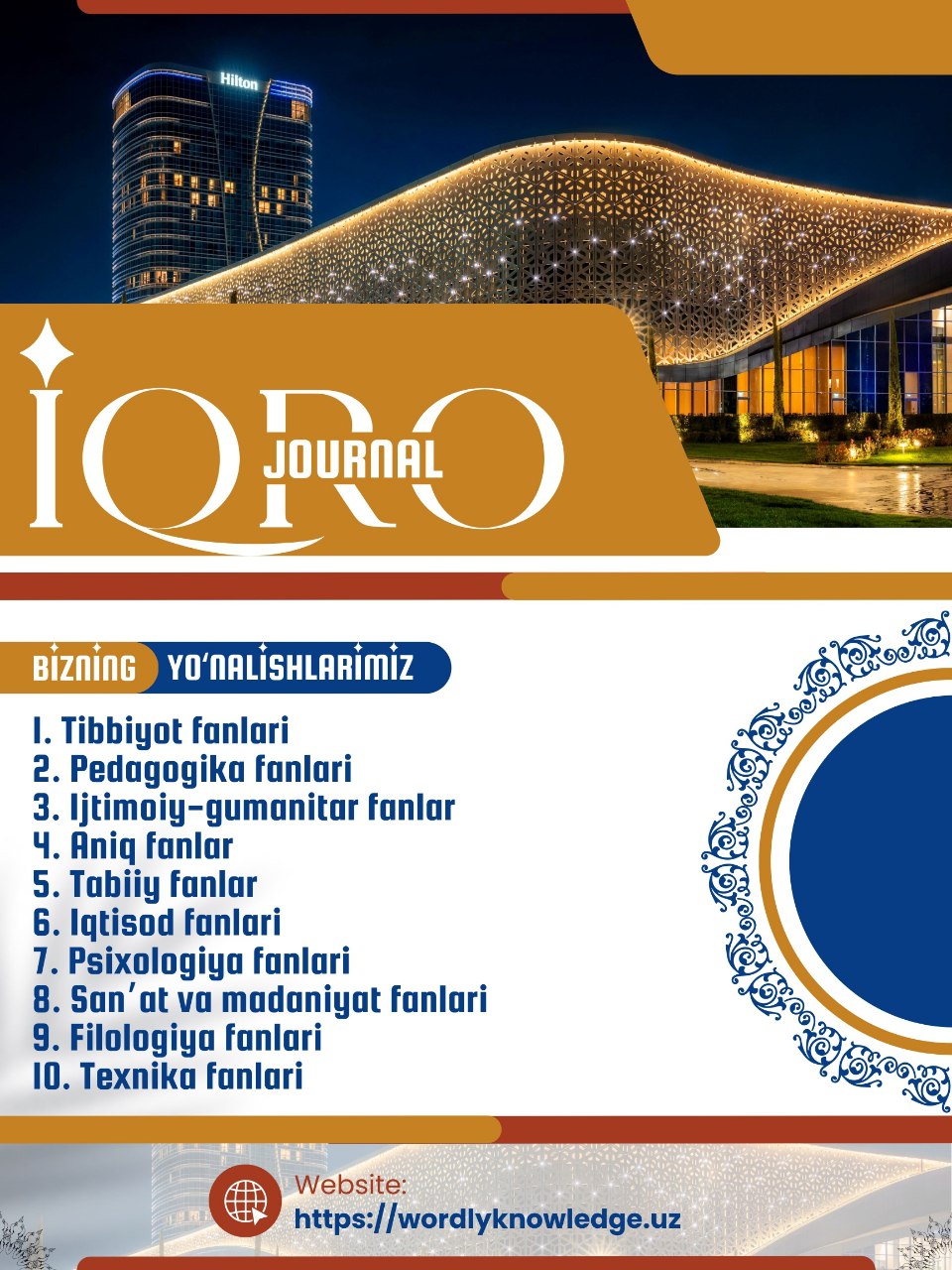ARCHITECTURAL DESIGN: METHODS OF IDEA GENERATION AND FORMATION IN BUILDING PLANNING
Keywords:
Architectural design, idea generation, building planning, digital modeling, sustainable architecture, site analysis, biomimicry, parametric design, urban planning, construction technology.Abstract
Architectural design plays a crucial role in shaping functional and aesthetically appealing buildings. This study explores various aspects of architectural design, including idea generation techniques, conceptual development, and implementation. A structured IMRAD approach is used to examine how architects conceptualize and execute their designs. The findings highlight best practices and innovative strategies that enhance architectural creativity and efficiency.
References
1.Ching, F. D. K. (2014). Architecture: Form, Space, & Order. John Wiley & Sons.
2.Pallasmaa, J. (2012). The Eyes of the Skin: Architecture and the Senses. John Wiley & Sons.
3.Neufert, E. (2019). Architects' Data. Wiley-Blackwell.
4.Koolhaas, R. (1995). S, M, L, XL. The Monacelli Press.
5.Lynch, K. (1960). The Image of the City. MIT Press.
6.Alexander, C. (1977). A Pattern Language: Towns, Buildings, Construction. Oxford University Press.
7.Rowe, P. G. (1987). Design Thinking. MIT Press.
8.Spiller, N. (2006). Visionary Architecture: Blueprints of the Modern Imagination. Thames & Hudson.
9.Baker, G. (2016). Le Corbusier: The Creative Search. Routledge.














